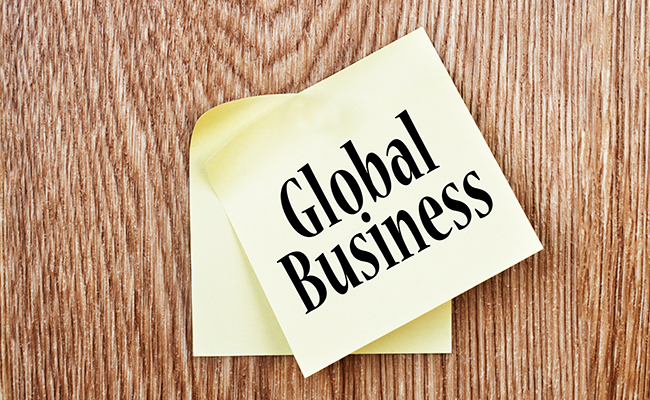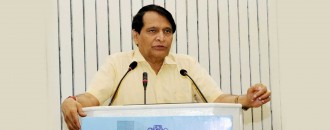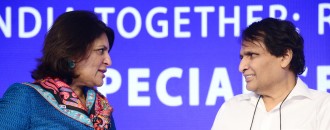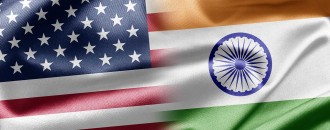
Trade, environmental policies must work together, says WTO Chief
The Dollar Business Bureau  “Trade will continue to be a key engine of growth in the coming years. Without trade, it is difficult to see how the world can provide for the additional 2 billion people expected by 2050, and respond to the urgent need to improve living standards, particularly for the poorest,” said Roberto Azevêdo, Director-General, WTO (World Trade Organisation). Speaking at a joint WTO-UNEP (United Nations Environment Programme) event “20 Years of Building Pathways to Sustainable Development” on April 28 at the WTO headquarters, the DG said, “The world has to devise practical and realistic ways to make trade and environmental policies work together, both at national and international levels,” and added, “WTO is taking steps to tackle this through our negotiating agenda.” WTO members have been discussing ways to achieve fewer and lower trade barriers on key environmental goods and services — which is part of the Doha Development Agenda. Independently a group of members, who together account for the majority of global environmental goods trade, launched a process to eliminate tariffs on these goods last July, the DG said. These talks on an ‘Environmental Goods Agreement’ would include technologies like solar panels and hydropower turbines. It is a welcome endeavour, which could bring major economic gains. And, crucially, although it is being taken forward by a group of members, the benefits would apply to the whole WTO membership. The elimination or reduction of trade barriers here would provide WTO members with greater access to a variety of imported goods involving environment-friendly technologies and some of the services which support them. “It could also help to stimulate innovation and facilitate the development of green industries,” Azevêdo said. The Doha agenda also focuses on the relationship between the WTO and the multilateral environmental agreements (MEAs). The WTO and MEA secretariats, including the UNFCCC (United Nations Framework Convention on Climate Change), have been engaged in fruitful collaboration for some years. “A successful outcome to our negotiations would formalize this cooperation,” the Director General said, adding that it would establish concrete means to avoid potential conflicts between WTO and MEA rules, for example by strengthening national cooperation between government agencies which deal with trade and environment.
“Trade will continue to be a key engine of growth in the coming years. Without trade, it is difficult to see how the world can provide for the additional 2 billion people expected by 2050, and respond to the urgent need to improve living standards, particularly for the poorest,” said Roberto Azevêdo, Director-General, WTO (World Trade Organisation). Speaking at a joint WTO-UNEP (United Nations Environment Programme) event “20 Years of Building Pathways to Sustainable Development” on April 28 at the WTO headquarters, the DG said, “The world has to devise practical and realistic ways to make trade and environmental policies work together, both at national and international levels,” and added, “WTO is taking steps to tackle this through our negotiating agenda.” WTO members have been discussing ways to achieve fewer and lower trade barriers on key environmental goods and services — which is part of the Doha Development Agenda. Independently a group of members, who together account for the majority of global environmental goods trade, launched a process to eliminate tariffs on these goods last July, the DG said. These talks on an ‘Environmental Goods Agreement’ would include technologies like solar panels and hydropower turbines. It is a welcome endeavour, which could bring major economic gains. And, crucially, although it is being taken forward by a group of members, the benefits would apply to the whole WTO membership. The elimination or reduction of trade barriers here would provide WTO members with greater access to a variety of imported goods involving environment-friendly technologies and some of the services which support them. “It could also help to stimulate innovation and facilitate the development of green industries,” Azevêdo said. The Doha agenda also focuses on the relationship between the WTO and the multilateral environmental agreements (MEAs). The WTO and MEA secretariats, including the UNFCCC (United Nations Framework Convention on Climate Change), have been engaged in fruitful collaboration for some years. “A successful outcome to our negotiations would formalize this cooperation,” the Director General said, adding that it would establish concrete means to avoid potential conflicts between WTO and MEA rules, for example by strengthening national cooperation between government agencies which deal with trade and environment.
Foreign Trade | April 30, 2015 | 1:10 pm IST.





 to success.
to success.